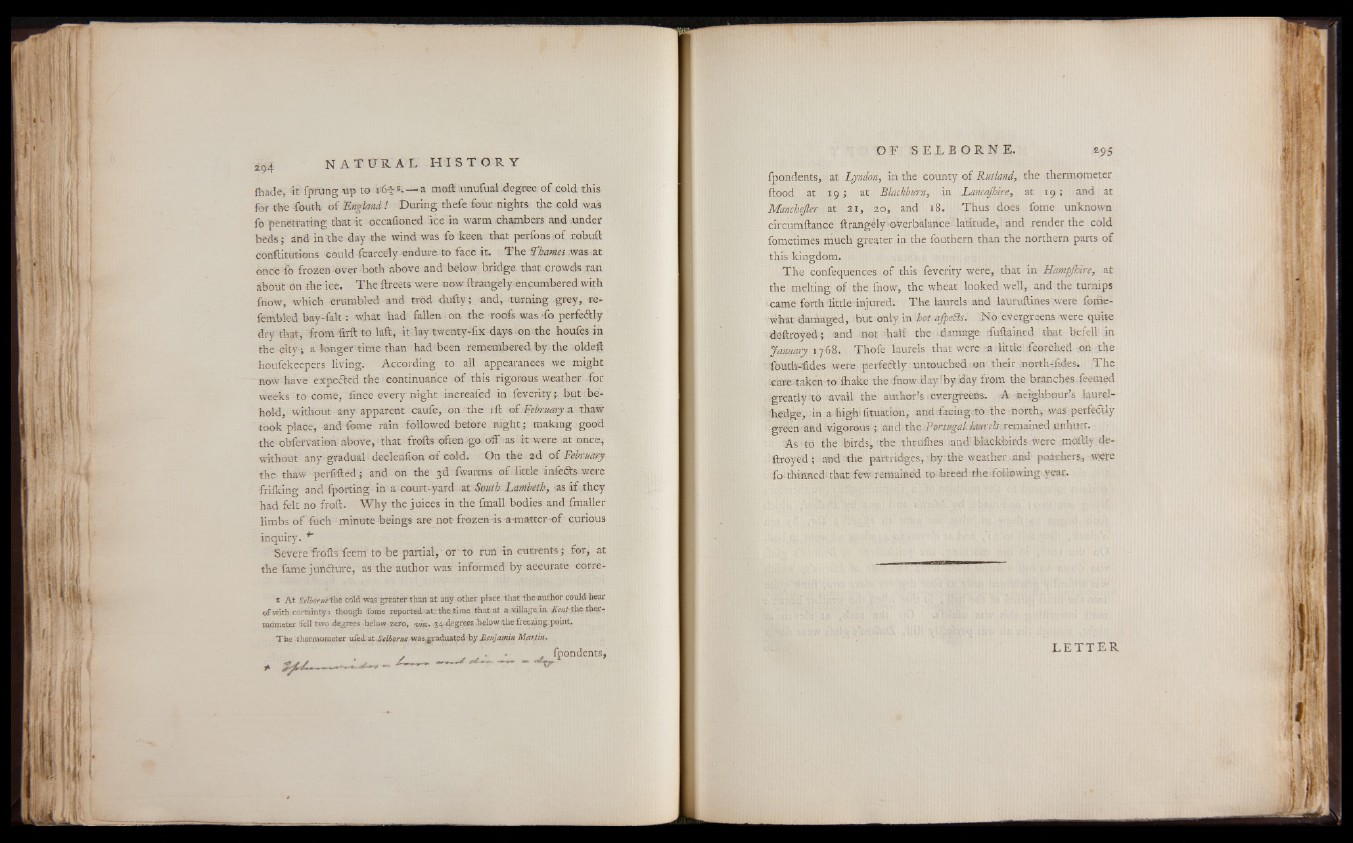
294
fhade, it fprcmgup to t ó t 8- — a maft unufual degree of cold this
for the -fouth of England / Daring thefe four nights the cold was
fo penetrating that'it occafioned ice in warm chambers and under
beds ; and in the day the wind was fo keen chat perfons of rabuft
conftitutions could fcarcdly endure to face it. The Thames .was at
Gnce fo frozen over both abo-ve and below bridge that crowds ran
about On the ice. The ftreets were now ftrangely encumbered with
fnow, which crumbled and trod dufty; and, turning grey, re-
fembled bay-fait-: what had fallen on the roofs was 'fo perfectly
dry that, from firft to laft, it lay twenty-fix days on the houfes in
the, city; a longer time than had'been remembered by-the oldeft
houfekeepers living. According to all appearances we might
now have expefted the continuance of this rigorous weather for
weeks to come, fince every night increafed in feversty; but behold,
without any-apparent caufe, on the lft oi. February.3 thaw
took place, and feme rain followed before night; making good
the obferVation above, that frofts often-go off -as it were at once,
without any gradual declenfion of cold. On the 2d of February
the thaw perfrfted; and on the 3d fwarms of lktle infedtsuwere
frilking and fporting in a court-yard at South Lambeth, as i f they
had felt no froft. Why the juices in the fmall bodies and fmaller
limbs of fuch minute beings are not frozen is ar-matter -ef curious
inquiry.
Severe frofts feem to be partial, or to run in currents; for, at
the fame junfture, ' as the author was informed by accurate correg
At Selhorne the cold wasgreaterthanat any other place that the-author could hear
of with certainty: though fome reported-at: the, time that at a tillage, in, Kent'the ther-
mdmeter fell two degrees below zero, •vise. 34 degrees below tlie freezing point.
*
The thermometer ufed at.Selbarne was.graduated by benjamin Martin• *
fpondentSj
* c r
fpondents, at Lyndon, in the county of Rutland, the thermometer
ftood at 19 ; at Blackburn, in Lancafhire, at 19; and at
Manchejler at 21, 20, and 18. Thus does fome unknown
circumftance ftrangely -overbalance latitude, and render the cold
fometimes much greater in the fouthern than the northern parts of
this kingdom.
The confequences of this feverity were, that in Hampjhire, at
the melting of the fnow, the wheat looked well, and the turnips
came forth little injured. The laurels and lauruftines were fotne-
wbat damaged, but only in hot afpebls. iNo evergreens were quite
döftroyed; and not 'half the .damage :fuftained that befell in
January 1768. Thofe laurels that were a little feorched on the
fouth-ftdes were perfectly untouched on their north-fides. The
care-taken to fhake thefnowilay Ibydny from the branches feemed
greatly -:to avail the author’s i evergreens. A heighbp.uris laurel-
hedge, in a high:fituation, and facingcto:the north, was:perfecUy
green and vigorous ; and the urhtiit.
As tri the birds; the thrd&es ;andl blackbirds were tncftly de-
ftroyed; and die partridges,' by the weather arid poachers, were
fo-thinned that few remained to breed the following year..